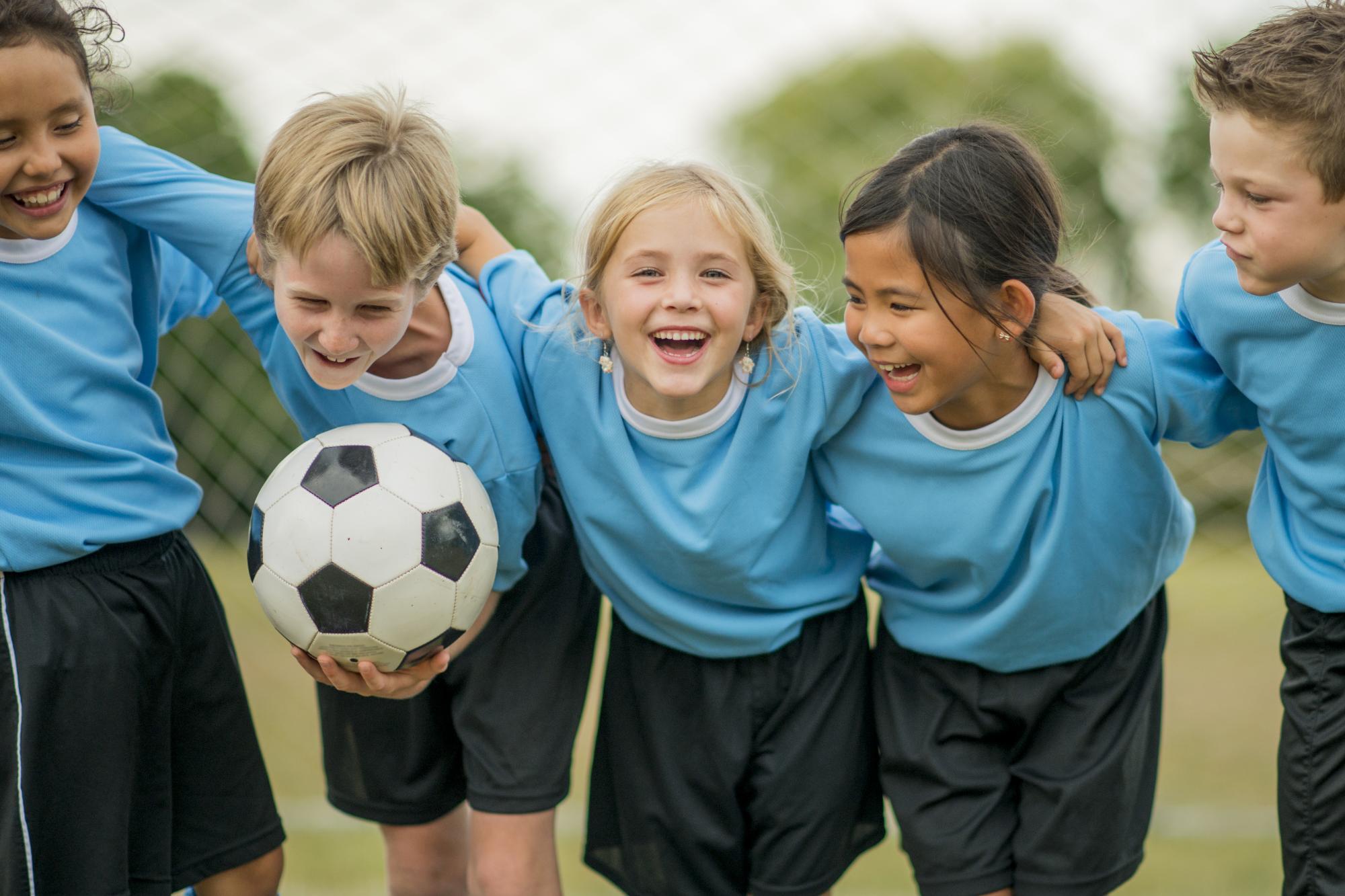
The Benefits of Sports for Kids
Not everyone is destined to be a wonderful athlete. Preferences, temperament, and natural ability can all impact performance, but the benefits of sports go far beyond performance and winning. Kids who play sports benefit from a number of physical, social, and emotional skills as well!
Building Physical Skills
There are many health benefits to playing sports, such as staying physically fit and active. Additionally, studies show that those who played organized sports as children or teens were more likely to continue to engage in active behavior as adults.
The development of gross motor skills benefit children as well. Kicking and throwing a ball, running, and jumping are all often practiced in many sports. Gross motor skills are not only important for confidence and self-esteem while playing sports, but can also help with school-readiness.
Psychological/Emotional Benefits of Playing Sports
Engaging in team sports can improve a child’s self-esteem and boost their confidence. Rather than focusing attention or questioning on winning and losing, focus on how much enjoyment your child is receiving from playing a sport. This is really the most important factor that will contribute to confidence and self-esteem.
Additionally, even children who aren’t the ‘best’ or who don’t win often can still achieve great confidence by having a growth mindset (often taught from coaches or parents). What this means is that these children understand that with practice and effort, they can become stronger players. This mindset will serve children well not only in sports, but in the future at a workplace or school, as well.
As kids develop this growth mindset of focusing on effort and a desire to learn and grow, they also develop better sportsmanship, and are able to accept defeat, seeing it as just another opportunity to grow and improve.
The Benefit of Social Skills in Sports
Social skills such as teamwork and cooperation are also huge benefits of engaging in team sports. Kids learn how to work together, solve problems, take turns, and work as a team. Practicing and honing these skills will have great benefits later in life.
Another major social benefit for kids is feeling a sense of belonging. This team mentality is crucial for many kids who are still developing social skills. It gives many kids the chance to interact with their peers in a way that they might not otherwise do or feel comfortable with. In doing so, many children find the opportunity to become a leader of their team, developing this wildly important social skill, as well.
Outdoor vs. Indoor Sports
We have discussed the importance of playing sports and being a part of a team for physical, emotional, and social benefits. While these are true for both indoor and outdoor sports, they each have advantages of their own.
In playing sports outdoors, kids are connected with nature. As nature deficit disorder becomes more and more studied, we understand just how crucial it is that our kids find ways to connect with nature. Additionally, the benefits of outdoor activity such as an increase in Vitamin D, stress release, and an increase in kids’ attention spans all come into play as well.
We understand that playing sports is beneficial to kids for a number of reasons. It increases confidence and self-esteem, and allows us to instill a growth mindset in kids, setting them up for success in the future. Additionally, they will stay physically fit and healthy and will have the opportunity to practice social skills, such as listening and taking turns. If you are looking for ways to encourage your child to play sports, this article has some excellent tips for parents to do so.
Would you like to be the first to hear about our new products and more? Sign up for our Nature’s Path Newsletter.







